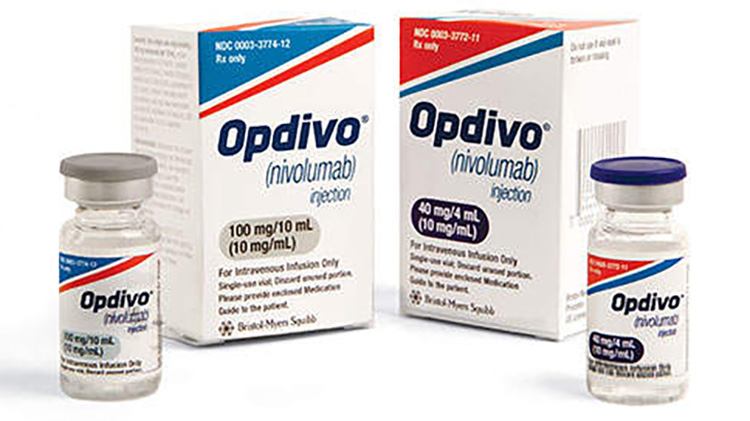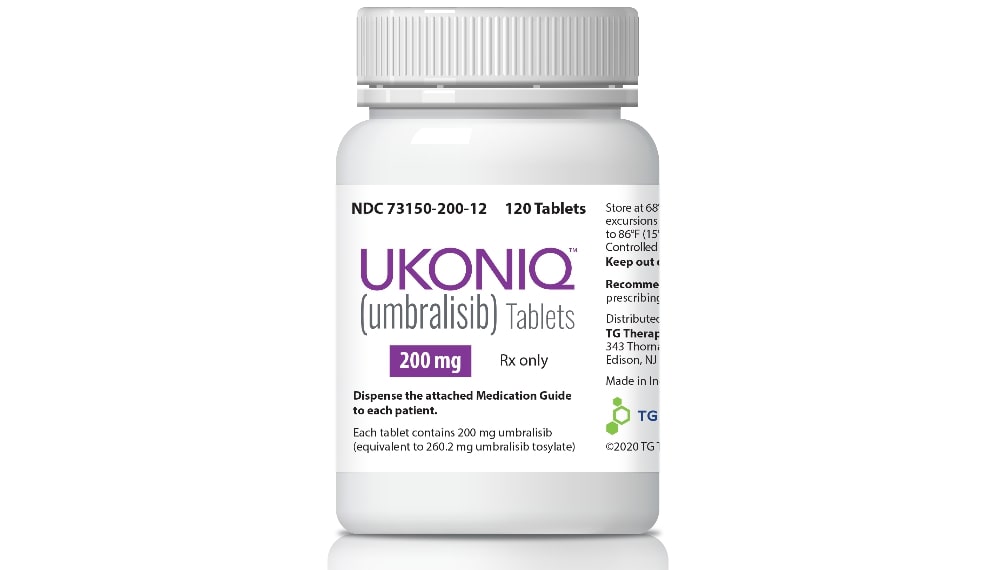Opdivo (Nivolumab) vs Ukoniq (umbralisib)
Opdivo (Nivolumab) vs Ukoniq (umbralisib)
Opdivo (nivolumab) and Ukoniq (umbralisib) are both used in the treatment of certain cancers, but they work in different ways. Opdivo is a type of immunotherapy called a checkpoint inhibitor that helps the immune system recognize and attack cancer cells, and it's commonly used for cancers such as melanoma, non-small cell lung cancer, and kidney cancer. On the other hand, Ukoniq is a kinase inhibitor that targets specific pathways inside cancer cells to stop their growth and is used for treating marginal zone lymphoma and follicular lymphoma. When deciding between these two medications, it's essential to consider the specific type of cancer being treated, the patient's overall health, and the potential side effects, as each medicine is tailored to different cancer profiles and may not be interchangeable. It is crucial to consult with an oncologist who can provide a personalized recommendation based on the individual's medical history and the specific characteristics of their cancer.
Difference between Opdivo and Ukoniq
| Metric | Opdivo (Nivolumab) | Ukoniq (umbralisib) |
|---|---|---|
| Generic name | Nivolumab | Umbralisib |
| Indications | Various types of cancers including melanoma, non-small cell lung cancer, kidney cancer, bladder cancer, head and neck cancer, and others | Marginal zone lymphoma (MZL) and follicular lymphoma (FL) after at least one prior anti-CD20-based regimen |
| Mechanism of action | Programmed death receptor-1 (PD-1) blocking antibody | PI3K delta and CK1 epsilon inhibitor |
| Brand names | Opdivo | Ukoniq |
| Administrative route | Intravenous infusion | Oral |
| Side effects | Fatigue, rash, musculoskeletal pain, pruritus, diarrhea, nausea, and others | Increased liver enzymes, diarrhea, fatigue, musculoskeletal pain, rash, and others |
| Contraindications | Severe hypersensitivity to nivolumab or any of its excipients | None specifically mentioned; however, should be used with caution in patients with severe hepatic impairment or severe renal impairment |
| Drug class | Immune checkpoint inhibitor | Small molecule kinase inhibitor |
| Manufacturer | Bristol-Myers Squibb | TG Therapeutics |
Efficacy
Efficacy of Opdivo (Nivolumab) in Lymphoma
Opdivo (Nivolumab) is a programmed death receptor-1 (PD-1) blocking antibody used in cancer immunotherapy. It is particularly effective in treating certain types of lymphoma, including classical Hodgkin lymphoma (cHL) after relapse or after stem cell transplantation. Clinical trials have demonstrated that Nivolumab can induce a response in a significant proportion of these patients. The overall response rate (ORR) in relapsed or refractory cHL patients has been reported to be high, with many patients achieving partial or complete remission. However, the efficacy can vary based on prior treatments and the extent of the disease.
Efficacy of Opdivo (Nivolumab) in Other Lymphoma Subtypes
While Opdivo has shown promise in cHL, its efficacy in other lymphoma subtypes, such as non-Hodgkin lymphoma (NHL), is still being explored. The response rates in NHL subtypes like follicular lymphoma and diffuse large B-cell lymphoma (DLBCL) may be lower compared to cHL. Nevertheless, Nivolumab continues to be investigated in various combinations and settings to improve outcomes for patients with different lymphoma subtypes. Ongoing clinical trials are critical to understanding its full potential in the broader lymphoma patient population.
Efficacy of Ukoniq (Umbralisib) in Lymphoma
Ukoniq (Umbralisib) is a novel medication that targets the PI3K delta and CK1 epsilon pathways, which are often active in malignant B-cells. It is approved for the treatment of certain types of marginal zone lymphoma (MZL) and follicular lymphoma (FL) in patients who have received at least one prior anti-CD20-based regimen. Clinical trials have shown that Umbralisib can lead to durable responses in a subset of these patients. The ORR in MZL and FL has been found to be clinically meaningful, with a manageable safety profile. However, it is important to note that responses may vary, and not all patients will benefit from this treatment.
Comparative Efficacy and Considerations
When comparing the efficacy of Opdivo and Ukoniq in lymphoma, it is important to consider the specific lymphoma subtype and previous treatments the patient has undergone. Both medications have shown efficacy in their respective approved indications, but their roles in treatment may differ based on the disease context. Additionally, ongoing research and clinical trials may further define their place in therapy, including potential combination treatments and their use in other lymphoma subtypes. Physicians must weigh the benefits and risks of these medications and consider individual patient factors when making treatment decisions.
Regulatory Agency Approvals
Opdivo
-
European Medical Agency (EMA), European Union

-
Food and Drug Administration (FDA), USA

-
Health Canada

-
Pharmaceuticals and Medical Devices Agency (PMDA), Japan

-
Therapeutic Goods Administration (TGA), Australia

-
Medsafe (NZ)

Ukoniq
-
Food and Drug Administration (FDA), USA

Access Opdivo or Ukoniq today
If Opdivo or Ukoniq are not approved or available in your country (e.g. due to supply issues), you can access them via Everyone.org.
How it works

Make an enquiry
Choose the medicine you want to buy, answer a couple of questions, and upload your prescription to speed things up. We’ll get back to you within 24 hours.


Make an enquiry
Choose the medicine you want to buy, answer a couple of questions, and upload your prescription to speed things up. We’ll get back to you within 24 hours.


Breeze through the paperwork
We'll guide you through the required documents for importing unapproved medicine, ensuring you have all the necessary information.


Get a personalized quote
We’ll prepare a quote for you, including medicine costs and any shipping, administrative, or import fees that may apply.


Receive your medicine
Accept the quote and we’ll handle the rest - sourcing and safely delivering your medicine.

Some text on this page has been automatically generated. Speak to your physician before you start a new treatment or medication.
Let's talk
If you have any questions, call us or send us a message through WhatsApp or email:
Contact us




